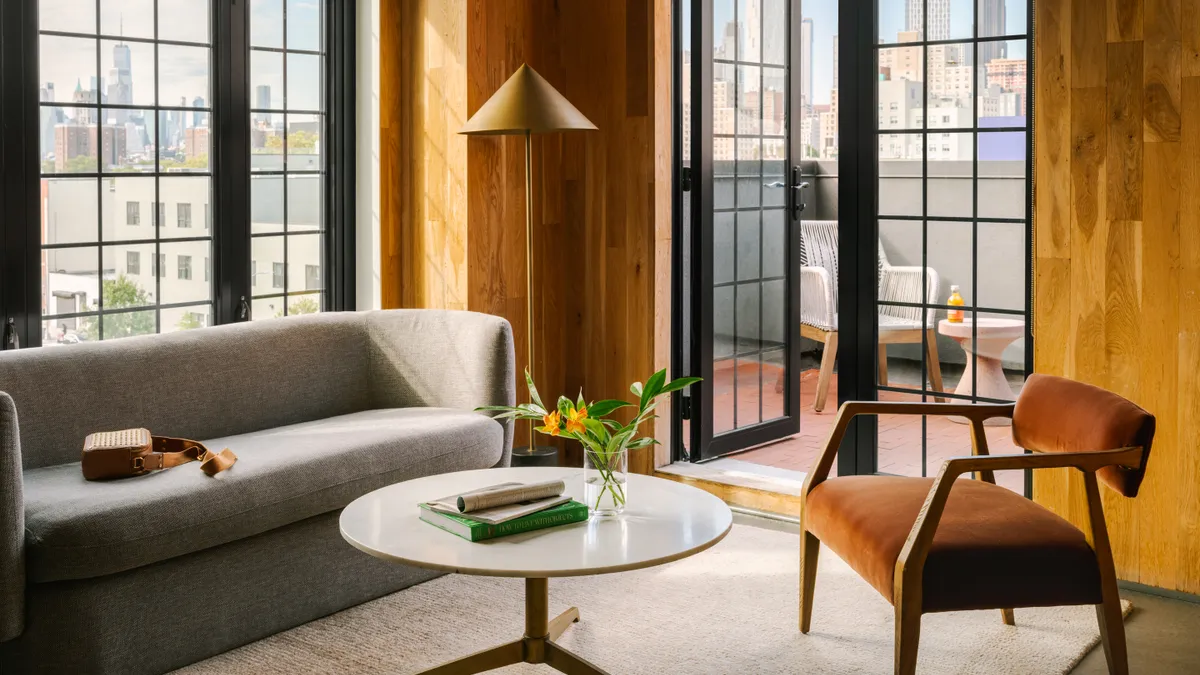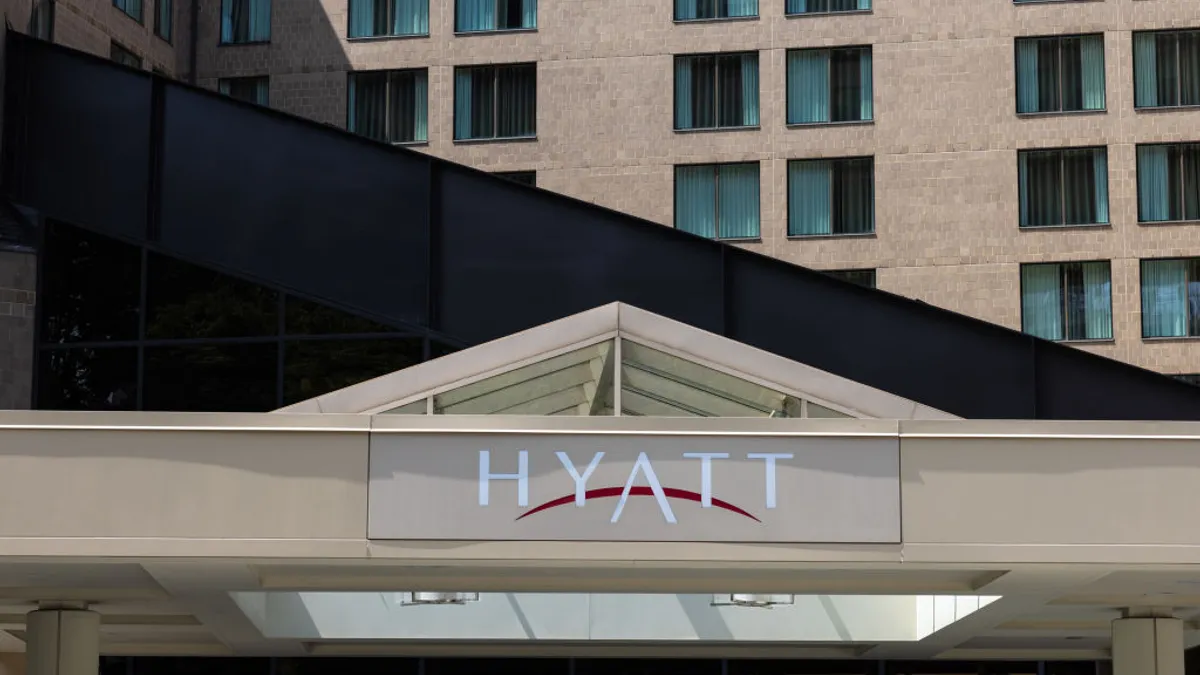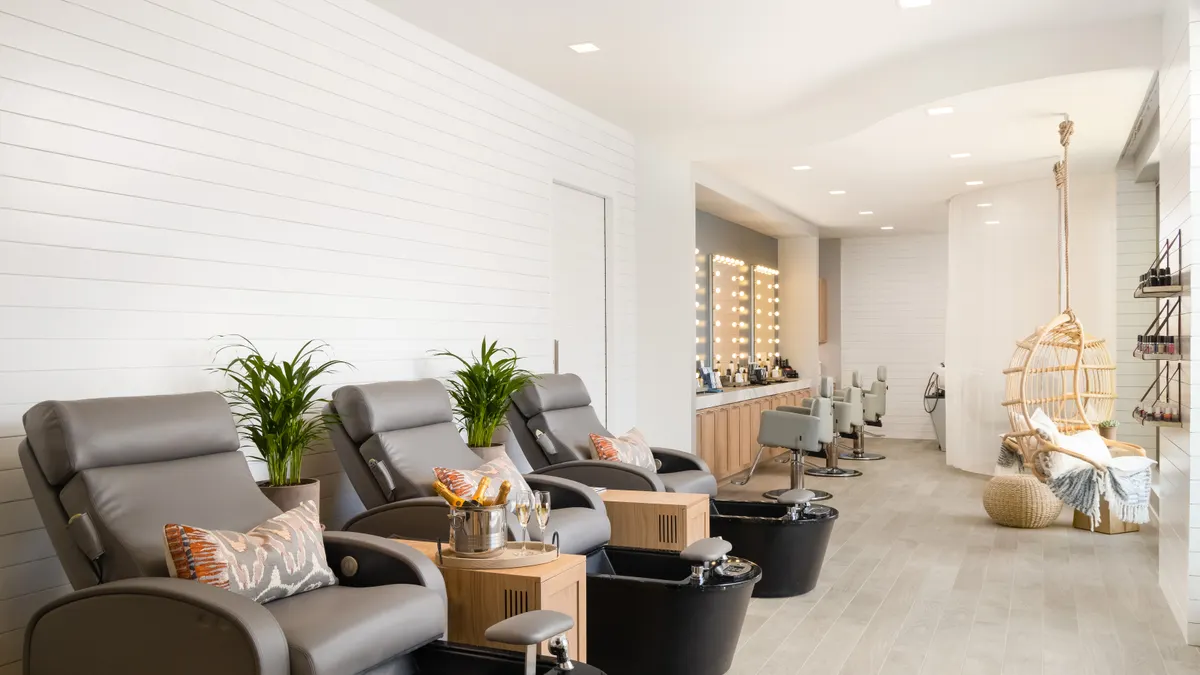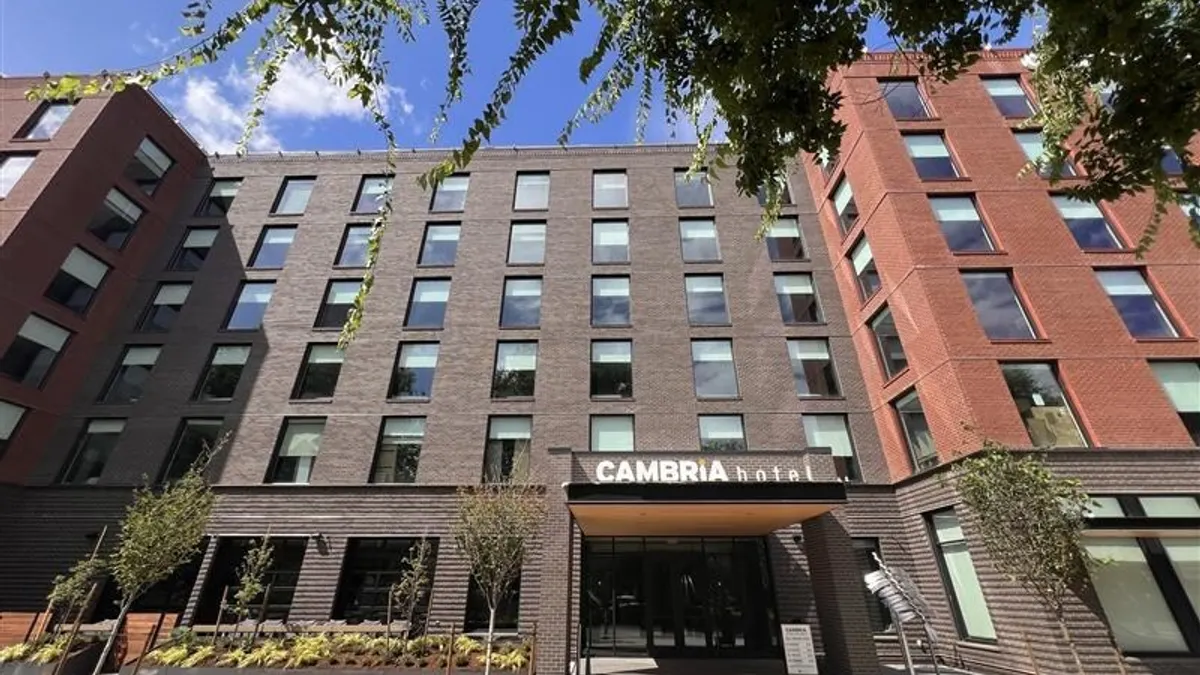On Monday, Marriott International and Sonder Holdings Inc. entered into a long-term strategic licensing agreement to create the new collection Sonder by Marriott Bonvoy.
Marriott will add Sonder’s existing portfolio of more than 9,000 rooms to its system by year-end, which will be available to book via Marriott.com and the Marriott Bonvoy app. The hotel company will also add approximately 1,500 Sonder rooms to its pipeline.
While the partnership could benefit both companies, Sonder stakeholders, in particular, may get some relief amid the company’s ongoing legal and operational challenges, which have dampened shareholder value. Hotel Dive took an in-depth look at what the agreement means for both companies and how strategic partnerships like it are fuelling growth in the hotel industry.
Stakeholder value for Sonder
Sonder entered the strategic licensing agreement with Marriott, in part, to “best position Sonder to deliver value for all stakeholders,” Janice Sears, lead independent director of the Sonder Board of Directors, said in a Monday release. Value opportunities the partnership presents include increased revenues and operational efficiencies.
Through the partnership, Sonder’s properties will participate in the Marriott Bonvoy loyalty program, which leads other major hotel companies by membership with more than 200 million members.
Available for booking on Marriott Bonvoy channels and with access to Marriott’s global sales organization, the Sonder properties will be marketed as though they are any other Marriott brand. This is expected to drive heightened demand to Sonder hotels and ultimately increase RevPAR, according to the company.
An “improved distribution channel mix and preferred distribution channel rates” created through the partnership will also drive cost savings, Sonder detailed in the release. And the company anticipates the partnership will enhance its value proposition to real estate owners.
Creating stakeholder value is particularly important for Sonder, as the company grapples with both legal and operational challenges that have impacted its investors and other stakeholders in recent months.
In March, Sonder delayed its fourth-quarter and full-year 2023 financial results after identifying “accounting errors” in its 2022 and 2023 statements. At that time, the company said it would need to restate the aforementioned financial statements, which would likely increase its overall net loss and loss per share in the impacted periods.
Following the postponement, Sonder's stock price fell $2.10 per share, or 38.2%, to close at $3.40 per share on March 18, according to Los Angeles-based Portnoy Law Firm.
Subsequently, a class action lawsuit was filed against Sonder on behalf of its investors, claiming the company provided false and/or misleading statements that resulted in monetary losses, the firm detailed in a June release.
As of Monday, the company still had not published results for the fourth quarter of 2023 or any subsequent quarters of 2024 to its website. And early Tuesday, the company reported it had received a “deficiency notice” from Nasdaq on Aug. 15 as a result of its failure to post results for the second quarter of 2024.
Meanwhile, Sonder has faced operational struggles over the past year, agreeing to exit or reduce rent at approximately 105 of its properties to “mitigate losses.” And in February, the company terminated roughly 17% of its corporate workforce to drive cost savings, according to a filing with the U.S. Securities and Exchange Commission.
Sonder declined a Hotel Dive request for comment.
More rooms for Marriott
Marriott expects the strategic licensing agreement with Sonder to boost its revenues and net rooms growth in 2024.
Under the agreement, Marriott will receive a royalty fee based on a percentage of Sonder gross room revenues, the company detailed in a Monday release.
In the same release, Marriott upgraded its net rooms growth outlook for the full year. The hotel company now expects full-year 2024 net rooms growth of from 6% to 6.5%, up from an earlier forecast of from 5.5% to 6%.
The integration of the Sonder rooms won’t just help Marriott grow portfolio scale, though. It will also diversify the company’s real estate holdings, according to a release.
Sonder’s portfolio comprises apartment-style accommodations and small boutique hotels in 37 mostly urban markets across 10 countries in North America, Europe and the Middle East, a Marriott spokesperson told Hotel Dive.
Located in these “key markets,” the Sonder properties appeal to “key demographics” for Marriott, including younger travelers such as Gen Z and millennials, the spokesperson said.
“Marriott has long believed in providing the right product at the right price point for all trip purposes and generations of travelers,” said Tim Grisius, global officer of M&A, business development and real estate at Marriott. “With the planned addition of Sonder by Marriott Bonvoy, we will be able to provide guests seeking apartment-style urban accommodations with even more options in the Marriott Bonvoy portfolio.”
Urban markets in the U.S., specifically, are expected to see heightened traveler demand through 2025, according to JLL. And Deloitte reported in April that demographic shifts would likely impact the way hotel companies operate, projecting that younger generations will account for nearly 90% of trips by 2030.
Partnership push
This isn’t the first time Marriott has made moves to diversify its portfolio and reach new audiences through a strategic partnership.
In July 2023, Marriott similarly entered a long-term strategic licensing agreement with MGM Resorts International, creating the MGM Collection with Marriott Bonvoy. Marriott converted some 31,000 rooms at MGM properties in Las Vegas under its reservation system, fortifying its position in the leading U.S. leisure market.
So far, the partnership has proven beneficial for both companies. Earlier this month, MGM CFO Jonathan Halkyard said during an earnings call that MGM had seen 410,000 room nights booked year-to-date through the partnership, “exceeding expectations.” Marriott CEO Anthony Capuano, meanwhile, said during a July earning call that the partnership was “really going great.”
Industrywide, brand partnerships and acquisitions have become a popular way to quickly grow portfolio scale and loyalty membership.


















